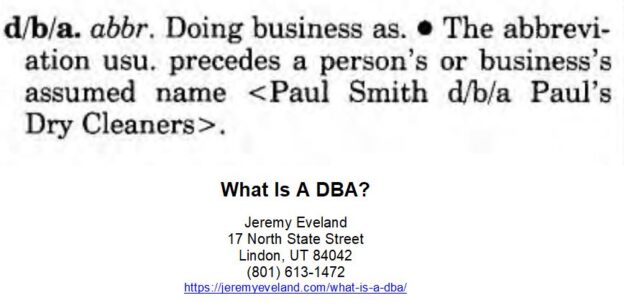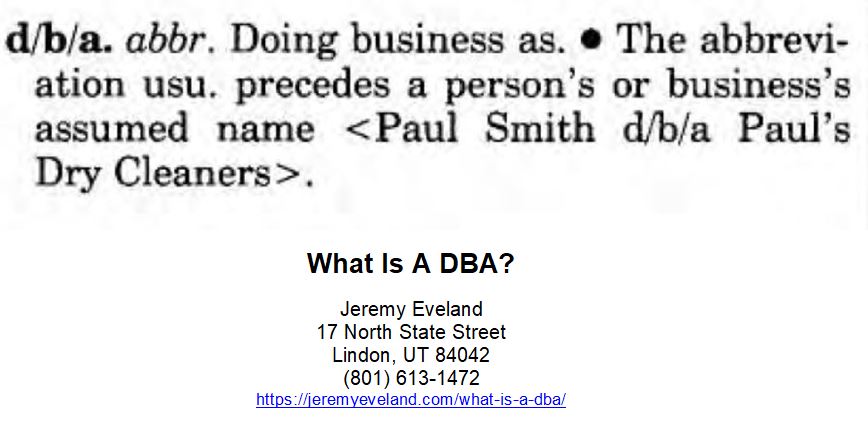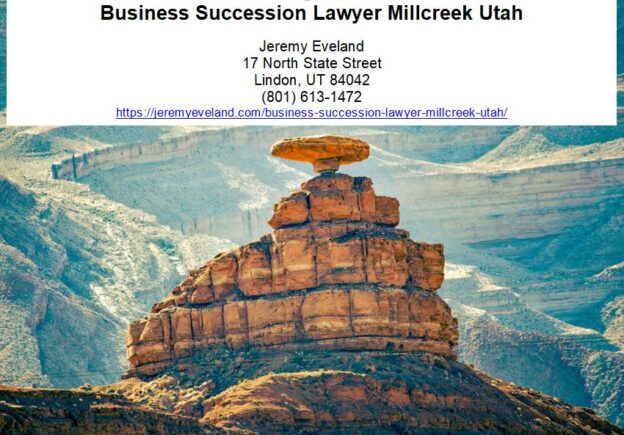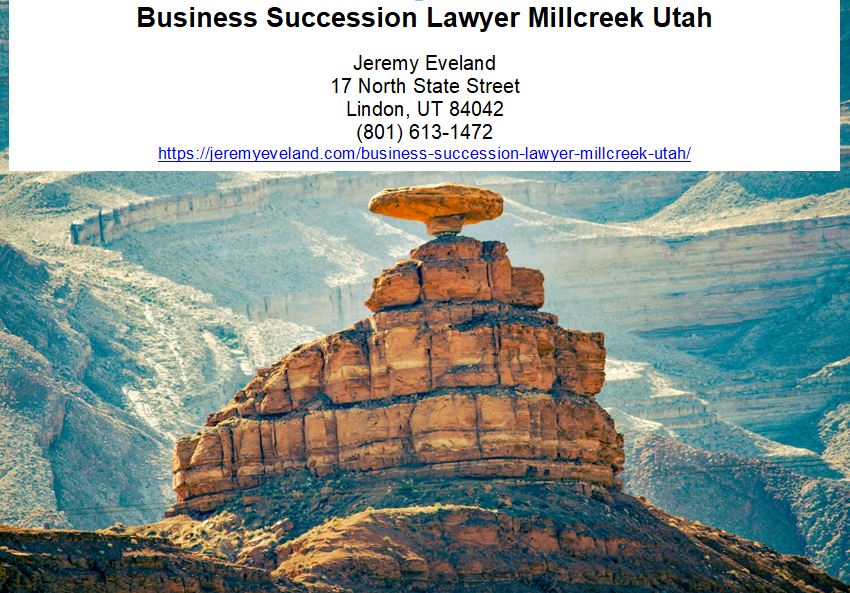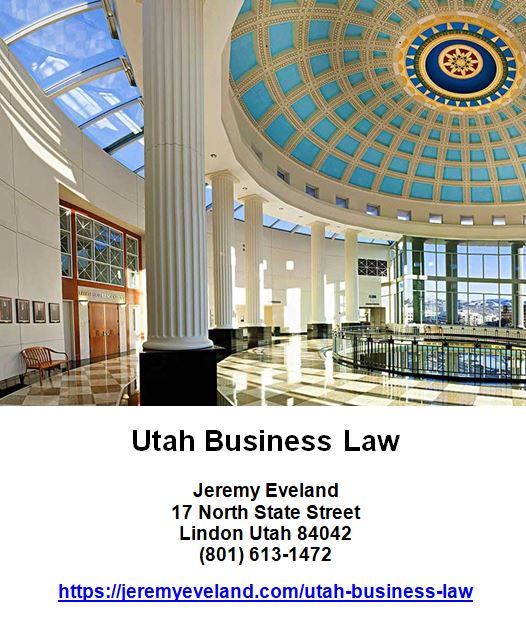What Is An LLC?
-
Business Legal Topics
- Introduction
- What Are the Benefits of Limited Liability Protection for LLC Owners?
- What Are the Tax Implications of Forming an LLC?
- What Are the Requirements for Forming an LLC in Utah?
- What Are the Advantages and Disadvantages of Forming an LLC?
- What Is an LLC and How Does It Differ from Other Business Structures?
- Why You Need an LLC Lawyer
- Q&A
“Unlock the Benefits of an LLC: Protect Your Assets and Grow Your Business!”
Introduction
An LLC, or Limited Liability Company, is a type of business structure that combines the pass-through taxation of a partnership or sole proprietorship with the limited liability of a corporation. LLCs are popular among small business owners because they offer the flexibility of a partnership or sole proprietorship while providing the limited liability of a corporation. LLCs are also relatively easy to set up and maintain, making them an attractive option for entrepreneurs.
What Are the Benefits of Limited Liability Protection for LLC Owners?
Limited liability protection is one of the primary benefits of forming a limited liability company (LLC). LLC owners, also known as members, are not personally liable for the debts and obligations of the LLC. This means that if the LLC is sued or incurs debt, the members’ personal assets are generally not at risk.
The limited liability protection of an LLC is similar to that of a corporation. However, unlike a corporation, an LLC does not require the same formalities and paperwork. This makes it easier and less expensive to form and maintain an LLC.
In addition to limited liability protection, LLCs offer other benefits. LLCs are not subject to the same double taxation as corporations. This means that LLCs do not pay taxes on their profits; instead, the profits and losses are passed through to the members, who report them on their individual tax returns.
LLCs also offer flexibility in terms of management and ownership. LLCs can be managed by members or by managers, and members can be individuals, corporations, or other LLCs. This makes it easy to add or remove members and to transfer ownership interests.
Overall, limited liability protection is one of the primary benefits of forming an LLC. LLCs offer protection from personal liability for the debts and obligations of the LLC, as well as other benefits such as flexibility in terms of management and ownership, and the avoidance of double taxation.
What Are the Tax Implications of Forming an LLC?
Forming an LLC (Limited Liability Company) can provide business owners with a number of advantages, including limited personal liability, pass-through taxation, and flexibility in management. However, it is important to understand the tax implications of forming an LLC before making the decision to do so.
The primary tax implication of forming an LLC is that the business will be subject to pass-through taxation. This means that the LLC itself will not be taxed, but rather the profits and losses of the business will be passed through to the owners and reported on their individual tax returns. The owners of the LLC will be responsible for paying taxes on their share of the profits, as well as any applicable self-employment taxes.
In addition, LLCs may be subject to state and local taxes, depending on the jurisdiction in which they are formed. For example, some states may require LLCs to pay an annual franchise tax or a minimum tax. Additionally, LLCs may be subject to payroll taxes if they have employees.
Finally, LLCs may be subject to special taxes, such as the Unrelated Business Income Tax (UBIT). This tax applies to income generated from activities that are not related to the LLC’s primary business purpose.
Overall, forming an LLC can provide business owners with a number of advantages, but it is important to understand the tax implications before making the decision to do so. By understanding the various taxes that may apply to an LLC, business owners can make an informed decision about whether or not forming an LLC is the right choice for their business.
What Are the Requirements for Forming an LLC in Utah?
Forming an LLC in Utah requires the completion of several steps. The first step is to choose a unique name for the LLC. The name must include the words “Limited Liability Company” or the abbreviation “LLC.” The name must also be distinguishable from any other business entity registered with the Utah Division of Corporations and Commercial Code.
The second step is to appoint a registered agent. The registered agent must be a Utah resident or a business entity authorized to do business in Utah. The registered agent must have a physical address in Utah and must be available during normal business hours to accept service of process.
The third step is to file the Articles of Organization with the Utah Division of Corporations and Commercial Code. The Articles of Organization must include the LLC’s name, the name and address of the registered agent, the purpose of the LLC, and the name and address of each organizer.
The fourth step is to create an operating agreement. The operating agreement should include the LLC’s purpose, the rights and responsibilities of the members, the management structure, and the rules for admitting new members.
The fifth step is to obtain any necessary licenses and permits. Depending on the type of business, the LLC may need to obtain a business license, a sales tax permit, and other permits or licenses.
Finally, the LLC must comply with all applicable federal, state, and local laws. This includes filing annual reports and paying taxes.
By following these steps, an LLC can be formed in Utah.
What Are the Advantages and Disadvantages of Forming an LLC?
The Limited Liability Company (LLC) is a popular business structure that combines the advantages of a corporation with the flexibility of a partnership. LLCs offer limited liability protection, pass-through taxation, and the ability to have multiple owners. However, there are also some drawbacks to consider before forming an LLC.
Advantages
The primary advantage of forming an LLC is limited liability protection. This means that the owners of the LLC are not personally liable for the debts and obligations of the business. This protection is similar to that of a corporation, but without the formalities and paperwork associated with a corporation.
Another advantage of an LLC is pass-through taxation. This means that the LLC itself does not pay taxes on its income. Instead, the profits and losses are “passed through” to the owners, who report them on their individual tax returns. This can be beneficial for businesses that are just starting out, as it can help to reduce the amount of taxes owed.
Finally, LLCs offer flexibility when it comes to ownership. Unlike a corporation, an LLC can have an unlimited number of owners, and the owners can be individuals, corporations, or other LLCs. This makes it easy to add or remove owners as needed.
Disadvantages
One of the main disadvantages of an LLC is that it can be more expensive to form and maintain than other business structures. This is because LLCs are subject to state filing fees and ongoing compliance requirements. Additionally, LLCs may be subject to self-employment taxes, which can be costly.
Another disadvantage of an LLC is that it may not be the best choice for businesses that are looking to raise capital. This is because LLCs do not have the same ability to issue stock as corporations do. This can make it difficult for an LLC to attract investors.
Finally, LLCs may not be the best choice for businesses that are looking to go public. This is because LLCs do not have the same ability to issue stock as corporations do. Additionally, LLCs may be subject to more stringent regulations than corporations.
In conclusion, forming an LLC can be a great way to protect your personal assets and take advantage of pass-through taxation. However, it is important to consider the potential drawbacks before making a decision.
What Is an LLC and How Does It Differ from Other Business Structures?
A Limited Liability Company (LLC) is a business structure that combines the pass-through taxation of a partnership or sole proprietorship with the limited liability of a corporation. This structure is popular among small business owners because it offers the flexibility of a partnership or sole proprietorship while providing the limited liability of a corporation.
The primary difference between an LLC and other business structures is the limited liability protection it provides. In an LLC, the owners are not personally liable for the debts and obligations of the business. This means that if the business is sued or goes bankrupt, the owners’ personal assets are not at risk. This is in contrast to a sole proprietorship or partnership, where the owners are personally liable for the debts and obligations of the business.
Another difference between an LLC and other business structures is the taxation. An LLC is a pass-through entity, meaning that the profits and losses of the business are passed through to the owners and reported on their individual tax returns. This is in contrast to a corporation, which is a separate taxable entity and pays taxes on its profits.
Finally, an LLC is a flexible business structure that allows for the owners to customize the management structure of the business. This is in contrast to a corporation, which is subject to more rigid rules and regulations.
In summary, an LLC is a business structure that combines the pass-through taxation of a partnership or sole proprietorship with the limited liability of a corporation. It offers the flexibility of a partnership or sole proprietorship while providing the limited liability of a corporation. Additionally, it is a pass-through entity for taxation purposes and allows for the owners to customize the management structure of the business.
Why You Need an LLC Lawyer
Forming a limited liability company (LLC) is an important step for any business. An LLC is a business structure that provides limited liability protection to its owners, known as members. This means that the members of the LLC are not personally liable for the debts and obligations of the business.
Having an experienced LLC lawyer on your side is essential to ensure that your LLC is properly formed and that all of the necessary paperwork is completed correctly. An LLC lawyer can help you understand the legal requirements for forming an LLC in your state, as well as the tax implications of forming an LLC.
An LLC lawyer can also help you draft the necessary documents to form your LLC, such as the Articles of Organization and Operating Agreement. These documents are essential to ensure that your LLC is properly formed and that all of the necessary legal requirements are met.
An LLC lawyer can also help you understand the legal implications of running an LLC. This includes understanding the rules and regulations that govern LLCs, as well as the tax implications of running an LLC. An LLC lawyer can also help you understand the legal implications of entering into contracts with other businesses or individuals.
Finally, an LLC lawyer can help you understand the legal implications of dissolving an LLC. This includes understanding the process for winding up the LLC and distributing assets to the members.
Having an experienced LLC lawyer on your side is essential to ensure that your LLC is properly formed and that all of the necessary paperwork is completed correctly. An LLC lawyer can help you understand the legal requirements for forming an LLC in your state, as well as the tax implications of forming an LLC. An LLC lawyer can also help you understand the legal implications of running an LLC, entering into contracts, and dissolving an LLC.
Q&A
Q: What is an LLC?
A: An LLC, or limited liability company, is a type of business structure that combines the pass-through taxation of a partnership or sole proprietorship with the limited liability of a corporation.
Q: What are the benefits of forming an LLC?
A: The main benefits of forming an LLC are limited liability protection, pass-through taxation, and flexibility in management and operations.
Q: What is the difference between an LLC and a corporation?
A: The main difference between an LLC and a corporation is that an LLC offers limited liability protection to its owners, while a corporation offers limited liability protection to its shareholders.
Q: What are the requirements for forming an LLC?
A: The requirements for forming an LLC vary by state, but generally include filing articles of organization, obtaining an EIN, and paying any applicable fees.
Q: How is an LLC taxed?
A: An LLC is typically taxed as a pass-through entity, meaning that the profits and losses of the business are passed through to the owners and reported on their individual tax returns.
Q: What is the difference between a single-member LLC and a multi-member LLC?
A: A single-member LLC is owned by one person, while a multi-member LLC is owned by two or more people. The taxation and management of the LLC will depend on the number of members.
LLC Lawyer Consultation
When you need legal help with an LLC, call Jeremy D. Eveland, MBA, JD (801) 613-1472 for a consultation.
Jeremy Eveland
17 North State Street
Lindon UT 84042
(801) 613-1472
Related Posts
What Is The Relationship Between Business Law And Economies?
Business Transaction Lawyer West Valley City Utah
Do I Need A Permit To Start A Business In Utah?
Business Succession Lawyer Draper Utah
Business Contract Lawyer Salt Lake City
What Is The Difference Between Corporate And Commercial Law?
Business Contract Lawyer West Valley City
Business Lawyer West Jordan Utah
Irrevocable Life Insurance Trusts
What Is The Purpose Of A Business Attorney?




